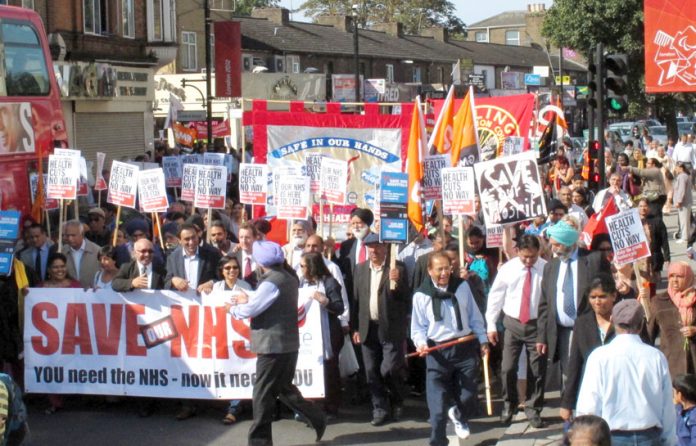
A SURVEY of GPs has shown that over half support the BMA organising a boycott of commissioning, with a sizeable minority supporting strike action to defend the GP contract.
The survey, of 226 GPs by Pulse magazine, showed that 52% would support a call from the BMA’s general practitioner committee (GPC) to boycott commissioning in the new clinical commissioning groups (CCGs).
The immediate cause for concern is the 2013/14 GP contract, which the BMA’s GPC has been negotiating for the last five months, and which the government is threatening to impose.
This requires sweeping changes to the QOF (quality and outcomes) framework, much more work, the phasing out of the Minimum Practice Income Guarantee, and a poor income settlement, such that many practices will experience serious funding cuts.
Such is the concern, that the GPC announced a series of road shows this month.
When GPs were asked what they thought of their negotiators in regard to the 2013/14 contract, 51% said a poor job, 35% a fair job, and 14% a good job.
With regard to action the GPC could take, 52% said GPC should call for a boycott of commissioning.
This comprised 18% supporting a ballot on strike action and 23% on action short of a strike.
Another 36% said GPC should collect undated resignation letters, and 74% wanted a publicity campaign to the public to tell them how damaging the imposition of the new contract would be.
In a bid to play down the opposition, Dr Vautrey, deputy chairman of GPC, said: ‘You only need for 5% or 10% of GPs to be part of CCG activity for it to go ahead. We would need an overwhelming boycott of commissioning in order for it to have any effect at all.’
However, he added: ‘I think what is much more likely is that GPs will find that with the increase in workload in their practices, GPs will find it much more difficult to find time to take part in CCG meetings and activity. The knock-on effect will speak for itself.’
• Over 200 staff working in care homes for the disabled in North Staffordshire run by the charity Turning Point are considering industrial action to defend their pay and conditions.
Unison is organising a consultative ballot this month to gauge support for a ballot on industrial action.
Turning Point is aiming to downgrade terms and conditions for the 2,600 staff that it employs across the country.
Jenny Harvey, North Staffs Unison community branch secretary, said: ‘The changes particularly affect payments for working nights and weekends. And as this area’s homes provide 24-hour care, members locally will be hit far harder than others in the country.
‘Despite this, Turning Point is steadfastly refusing to talk to us. So our members have been left with no choice but to hold some form of consultative ballot.’
She added: ‘The charity wants to sack its staff and re -employ them on new terms and conditions, which would lose them up to £400 a month.’
Unison national officer for charities has written to Lord Adebowale, chief executive of Turning Point saying: ‘It is a disgrace that a charity like Turning Point – set up to care for people in need – should treat its own staff so badly.’